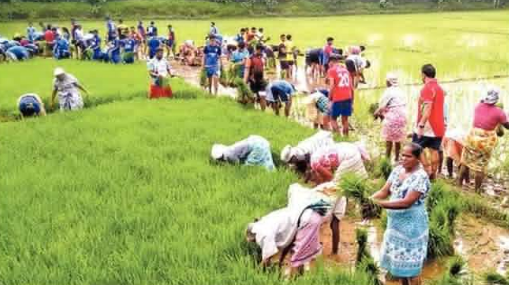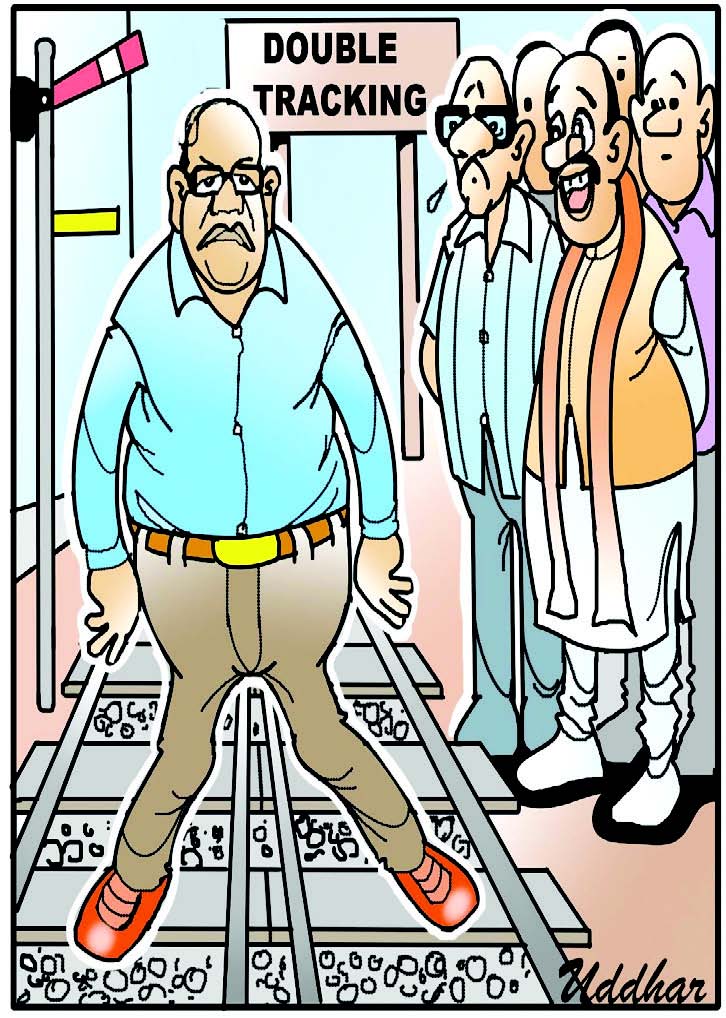
Alexandre Moniz Barbosa
Some good things can happen during a pandemic, and this perhaps is the one year after a long period when the harvest festivals that are currently being celebrated across the State – mostly on weekends – are turning out to be more meaningful than in the past years. For one, there has been a mini agricultural revolution across the State that has come about due to the pandemic and the lockdown that kept people home, that kept people away from work, that led to people losing their jobs, that led to people returning from jobs abroad and also from cruise ships that got docked. With time on their hands and some facing the prospect of unemployment, many turned to the land that had remained fallow.
It has been the time of isolation, where people turned to the internet and conducted business, work, classes, conversations, meetings, seminars all online. But agriculture was one activity that could not be conducted in the cyber world – apart of course from the farm games that are quite popular on the net – and the people had to actually drop down to the field – the red soil of the land – to revive the traditional occupation again. Goa’s paddy fields that had for long been left fallow were ploughed again this monsoon and paddy transplanted colouring the countryside in shades of swaying green again.
Every agriculture minister of Goa has announced plans of bringing fallow land under cultivation. Their success cannot be measured. Have a look at what the Economic Survey reports that are released annually have to say about agriculture in Goa. The Economic Survey 2012-13 says, “The state had an agrarian economy and nearly 75% of the population was involved in agriculture. But the liberation of Goa ushered in tremendous change in the economy of the state. Though this has been mainly due to influence of service sector, the state needs to achieve a balance between agriculture and service sector for sustainability.” Three years earlier, the Economic Survey 2009-10 had said, “Production and productivity in most crops have remained static. Except for groundnut, there has been a shortfall in targeted area coverage and production... The scope for expansion of food grain crops is very limited.”
Contrast this with the Economic Survey of 2019-20 that does not make any perspective statement but instead says, “Foreseeing sustainable development of agriculture sector by making agriculture activity more viable for better economics of scale in cultivation and marketing of produce with branding concept is undertaken by the State on priority.” It goes on to state that the government is working on high density plantation of commercial crops like mango and cashew with the aim to tap the export market. This is an excellent idea but what is being done to make this happen? It is not enough to have plans, they have to be implemented.
Where the ministers and government have failed over the past years and perhaps even decades, the pandemic that settled upon us in March may just have shown some success in the space of just a few months. This achievement that has come about by the novel coronavirus cannot be quantified at this moment, as the season is still on and the Agriculture Department has to receive data from the field before being able to work out just how much the pandemic has changed the scene, in effect how much has been the growth in produce. But, what is important now if for the government – the Agriculture Department in particular – to keep the momentum going so that once the economy opens up agriculture is not again relegated to the activities that are of lesser importance and hence ignored. That forward planning has to begin now, so that the government is ready for the challenge.
Can the government grab the opportunity that has now presented itself? There will be no better base from which to build up the sector in Goa than the present. Let it not be wasted.
If traditional festivals aren’t forgotten and are kept alive by the people today, should traditional occupations become history? Not necessarily, as they can always be dressed up differently and given a modern look. That is what the government has to plan for Goa, so that it can draw the youth back to the fields – to cultivate them and not just to play football on the bald patches of the fallow fields. There have been targets set in the past, including the promise of doubling farmers’ income has not materialised. This is an important aspect as without the promise of a monetary benefit the youth will not readily step into the fields. Can it be done?
The Economic Revival Committee that proposed measures for the post-COVID economy had stressed on agriculture. It can’t, however, remain at that. If there is such a recommendation then it has to be acted upon. At this moment it is not just the pandemic that has given agriculture a boost, but in recent months the State has been successful in getting Geographic Identification GI tags for the Khola chillies and Moira bananas. These are twin opportunities that the State has to convert into revenue generation means. Merely increasing the production of these chillies and bananas will not help the farmers, the State has to provide the marketing opportunities that will boost the farmers’ revenue. Finally it all comes down to the profit that the farmer in the field will get.
What Goa should aim at is a major agricultural revolution. It is time to be pragmatic. Mining operations are not going to start anytime soon, and even if they do, where will the ore be sold? Tourism after the pandemic is going to take months to revive. Even after the State opens up there government will have to aggressively market Goa in the international level. Goa does not have the industry that can absorb the available workforce. The limited option that the State has is agriculture, which helps in ways other than employment as it helps rejuvenate the earth that has been left fallow for years.
Alexandre Moniz Barbosa is Editor, Herald. He tweets at @monizbarbosa
